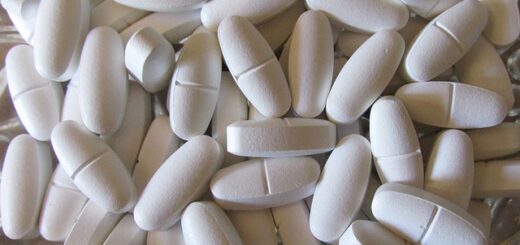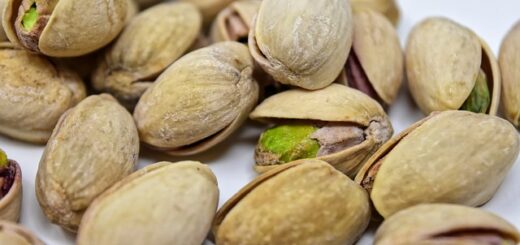What is Good for Dry Mouth?
Dry mouth, defined as xerostomia, is caused by the glands in this area not producing enough saliva. Saliva is a secretion that plays an important role in the digestive process. This secretion, which plays a role in moistening food and initiating digestive processes, also contributes significantly to maintaining oral health. Therefore, dry mouth can also be a problem associated with bad breath, a feeling of dryness in the throat and cracked lips. Although dry mouth alone does not seem to be a significant health problem, care should be taken as it may also occur due to some underlying health problems.
What is Dry Mouth?
Dry mouth can be defined as a person’s perception of a feeling of dryness in the oral cavity and therefore difficulty in actions such as swallowing. The first of the factors that cause this feeling are the side effects that occur after using various medications. The most common causes of dry mouth after medication side effects are radiotherapy applications and Sjögren’s syndrome or other autoimmune diseases.
It is important that xerostomia is not considered a normal condition that develops with aging.
What Causes Dry Mouth?
Many different conditions can cause dry mouth. Medication side effects are the primary reason for the development of dry mouth. Antihistamines, decongestants, hypertension drugs, diarrhea drugs, muscle relaxants, drugs used in Parkinson’s disease and many antidepressant-derived drugs can cause dry mouth. Since older individuals use more medications due to different health problems, dry mouth caused by medication side effects is a condition that is more common in this population.
Radiotherapy (radiation therapy) and chemotherapy used within the scope of cancer treatment may also cause dry mouth in patients. Radiotherapy applied to the head and neck area causes damage to the salivary glands in this area and therefore a decrease in the amount of saliva produced may occur.
Chemotherapy applications may cause dry mouth by affecting the chemical content of saliva or its production level in the body. Damage to the nerves that control the functioning of the glands in the mouth during trauma and surgical procedures are among other reasons that may cause dry mouth.
The causes of dry mouth can be summarized as follows:
- Stress
- Anxiety
- tobacco use
- mouth breathing
- Snore
- Autoimmune diseases such as Sjögren’s disease
- Botulism
- Diabetes
- Thrush
- Alzheimer’s disease
- Cystic fibrosis
Apart from these reasons, a decrease in the total amount of water in the body may also cause the salivary glands to work less and cause dry mouth. Continuing physical activities for a long time, especially in hot environments, may result in dry mouth complaints.
What are the symptoms of dry mouth?
Regardless of the underlying cause, dry mouth symptoms are generally known common findings. Inability to fully perform chewing, swallowing, speaking and tasting functions are among these common complaints that may occur together with excessive dry mouth. Reduced oral secretions can also make teeth and gums vulnerable to many problems.
There are many signs and symptoms that may occur when a person develops dry mouth:
- bad breath
- Development of cracks on lips
- Cracking in and around the mouth
- dysgeusia
- Predisposition to developing fungal infections in the mouth
- Feeling of pain in the tongue
- Development of frequent gum problems
- Tooth loss or plaque development
- Difficulty speaking or swallowing
- Salivary gland inflammation
- Sore throat
In addition to these symptoms, if other dryness complaints such as dry mouth and dry eyes and skin are accompanied, caution is recommended as the underlying disorder may be Sjögren’s syndrome.
How is Dry Mouth Diagnosed?
The diagnosis of dry mouth is a clinical diagnosis that can be made based on people’s complaints and physical examination findings. The decrease in saliva secretion in people can be clearly demonstrated with various diagnostic tools used when necessary:
sialometry
The normal flow rate of saliva is around 1.5-2 ml per minute when the glands are stimulated, while at rest it is approximately 0.3-0.4 ml per minute. Hyposalivation (lack of saliva secretion) refers to the situation in which the secretion rate does not exceed 0.5-0.7 ml per minute despite stimulation of the glands.
In order to perform this examination, the salivary glands are usually stimulated with citric acid and the secretions are collected immediately at the opening point of the duct into the mouth.
Sialography
Sialography is an imaging technique that allows radiological examination of the salivary glands and ducts. Sialography examination can be very useful, especially in cases where salivary gland stones or masses are suspected.
Biopsy
In salivary gland biopsy, a small sample of tissue is taken from these glands. This method is generally used in cases where Sjögren’s syndrome or cancer is suspected.
How is Dry Mouth Treated?
The main purpose of dry mouth treatment is to alleviate this complaint of people. Interventions made in this context are generally for the following purposes:
- Increasing saliva secretion
- Artificial provision of the epidemic
- Controlling dental problems
- Treating special conditions such as infections
If the main condition causing dry mouth is identified, eliminating this condition can also provide treatment for dry mouth. It should not be forgotten that the use of any drug should not be discontinued by individual decisions without the knowledge of physicians and other than current instructions. If it is determined that dry mouth occurs as a side effect of various medications, physicians may re-plan the current treatment with a medication that has fewer side effects.
Physicians may also prescribe certain medications to relieve the complaint of dry mouth. These drugs, which contain the active ingredient pilocarpine or seviline, have a supportive effect on the production of saliva.
What is Good for Dry Mouth?
Dry mouth usually appears as a temporary and treatable problem. Among the answers to the question of how to get rid of dry mouth are the various practices that many people who complain about this situation will do within the knowledge and advice of physicians:
- Sipping water frequently
- Avoiding drinks containing alcohol and caffeine
- Quitting tobacco use
- Limiting the amount of salt and sugar consumed during the day
- Chewing sugar-free gum
- Use of toothpaste and mouthwash that do not affect saliva secretion
Practices such as tooth brushing and flossing, which are effective for protecting oral health as well as against dry mouth, are among the methods that can be effective against tooth loss or gum diseases that may occur as a result of this problem. Another important practice is to be examined by a dentist at least twice a year in order to protect oral health. Some people may complain of dry mouth in the evening. Repeating this situation for many nights may indicate that this situation needs intervention. If the complaint of dry mouth at night is not treated, it can negatively affect activities such as speech and nutrition. There are various practices that can be done against dry mouth at night, with the knowledge and advice of physicians:
- Leave a glass of water on the side of the bed and drink this water if you wake up with a dry mouth at night.
- Be careful that the mouthwash solutions used when cleaning your teeth before going to bed do not contain alcohol.
- Using various devices to humidify the air in the bedroom
- Paying attention to nasal breathing before sleeping at night
- To prevent the development of dry mouth in the morning, avoid consumption of excessively salty or excessively sweet foods in the evening.
If the complaint of dry mouth cannot be resolved with home treatments, it is recommended that you contact healthcare institutions and get support from specialist physicians.











